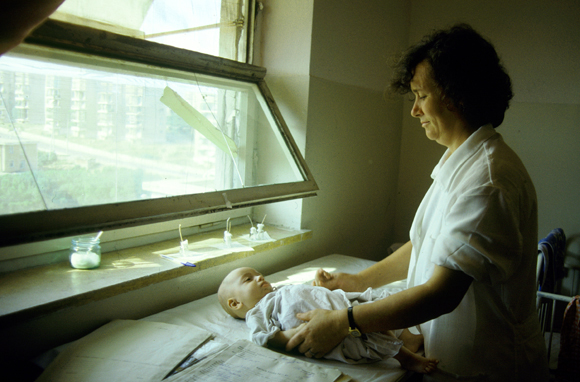A yeast found in the gut of infants in Ecuador seems to predict asthma development in childhood. The findings were presented Feb. 17 at the American Association for the Advancement of Science’s 2017 annual meeting.
“Children with this type of yeast called Pichia were much more at risk of asthma,” Brett Finlay, a microbiologist at Canada’s University of British Columbia (UBC) in Vancouver, said in a news release. “This is the first time anyone has shown any kind of association between yeast and asthma.”
Asthma affects the lungs and causes repeated episodes of wheezing, breathlessness, chest tightness and nighttime or early morning coughing. Asthma rates have increased dramatically since the 1950s, and now affect up to 20 percent of children in Western countries. Changes in the gut microbiota have been linked to asthma before, though scientists don’t know why this link exists.
Finlay and his colleagues have previously found that infants can be protected from asthma development if they acquire four specific gut bacteria in the first 100 days of life. The journal Science Translational Medicine published their study, “Early infancy microbial and metabolic alterations affect risk of childhood asthma” in 2015.
This time, they repeated the experiment using fecal samples and clinical records from 100 children in a rural village in Ecuador. Both Ecuador and Canada have high rates of asthma, with about 10 percent of the inhabitants in both countries suffering from the disease.
The team discovered that while gut bacteria indeed played a role in preventing asthma in new babies in Ecuador, the presence of Pichia yeast puts infants at risk for the disease.
Finlay also noted that a dirty environment could, ironically, protect infants in Ecuador from getting asthma.
While conducting the study, Finlay and colleagues at the University of Calgary and the Liverpool School of Tropical Medicine noted whether infants had access to clean water.
“Those that had access to good, clean water had much higher asthma rates and we think it is because they were deprived of the beneficial microbes,” Finlay said. “That was a surprise because we tend to think that clean is good, but we realize that we actually need some dirt in the world to help protect you.”
The research team will now re-examine the Canadian fecal samples and see if Pichia is also found in the babies’ gut.

